Five Books That Offer Readers Intellectual Exercise
Each of these titles exercises a different kind of reading muscle, so that you can choose the one that will push you most.
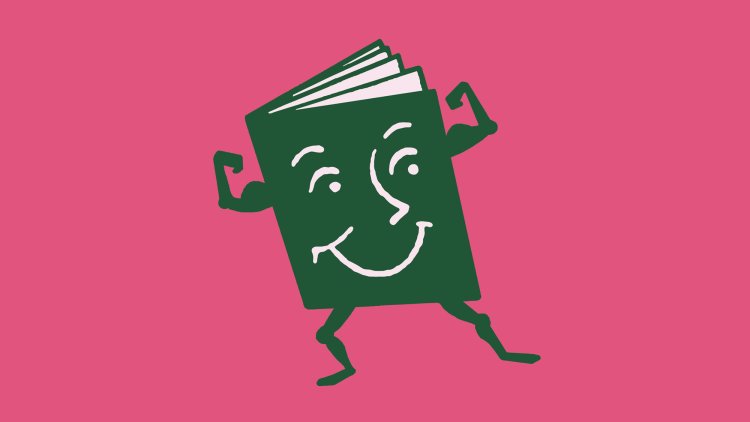
The new year has begun, bringing with it the socially sanctioned push to make resolutions. Readers, or those who want to devote more time to reading, tend to set some quantifiable intentions for the year to come. A popular one is finishing an arbitrary number of books; another approach is to establish specific parameters—reading only titles by women for a year, meeting a quota for books in translation, or trying one work from every country. Some readers opt for one or two giant books that are notoriously demanding.
There’s nothing wrong with these aspirations, but personally, I’m a bit allergic to this kind of goal setting. I don’t like hemming myself in with strict rules—and I don’t want to let my inner perfectionist force me to continue a challenge long after I’ve stopped enjoying it. More important, strict directives prioritize box-checking over holistic growth. There are many ways to advance your skill and capacity as a reader: Some of us are naturally drawn to detailed nonfiction, and others must learn to love it; some may have a taste for meandering, multigenerational epics, while their friends must train to build up the attention span they need. Depending on your particular strengths and desires for change, a single book may offer a better workout than a dozen others combined. Each of the five books below exercises a different kind of reading muscle, so that you can choose the one that will push you most.
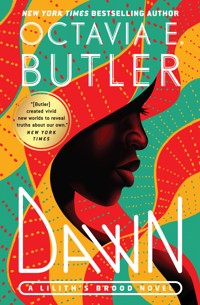
Dawn, by Octavia Butler
Butler’s best-known book is probably 1993’s Parable of the Sower, which takes place in an imagined 2024 uncannily like our own. But in 2025, consider picking up the science-fiction matriarch’s Xenogenesis series instead, starting with Dawn. The novel revolves around Lilith lyapo, a woman still mourning the death of her husband and child in a car accident when the world collapses during a nuclear war. At the book’s start, she wakes up and finds herself alone in a locked cell. Where is she, and who are her captors? The shocking truth: 250 years have passed since the war, which left Earth uninhabitable—and she’s one of the few humans left in the universe. She’s been preserved by the Oankali, an alien species so different from us in their senses, family systems, and even genders that she has a hard time making herself look at them at first. Like Lilith, readers are thrust into a foreign environment in which technology is as alive as fungi. In her uniquely straightforward style, Butler asks you to abandon preconceived ideas of what sentient life looks like and what survival really means. Once that perspective shift occurs, though, Butler’s universe—and the questions she’s raising—frees you to imagine whole new ways of being.
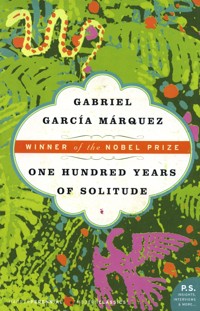
One Hundred Years of Solitude, by Gabriel García Márquez, translated by Gregory Rabassa
García Márquez’s 1967 novel is a beautiful, surreal saga following the Buendía family and the town they founded, Macondo, over the course of a century. During those years, Macondo—which begins as a solitary retreat in the middle of nowhere—is invaded more and more by the concerns of the outside world: technology, warfare, colonialism. The novel’s huge cast of characters typically remain in their community, but all have distinct trajectories, many of which lead to their own versions of loneliness, tragic or ecstatic. One Hundred Years of Solitude can be a difficult read: Character names are repeated across generations; magic blurs into reality. Then there is García Márquez’s style, packed with pages-long paragraphs and lengthy sentences whose cadences take you on surprising journeys. Perhaps its most distinguishing quirk is its paucity of dialogue or of scenes as we recognize them; the adage “Show, don’t tell” is upended. Yet the long sections summarizing various events or expounding on capitalism, naive idealism, and violence turn out to be as engaging as any page-turner for the reader who’s willing to soldier on.
[Read: Why some people become lifelong readers]
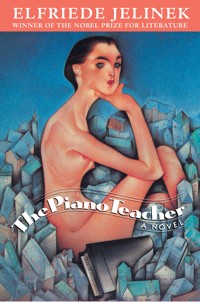
The Piano Teacher, by Elfriede Jelinek, translated by Joachim Neugroschel
The Austrian Nobel Laureate Jelinek’s 1983 novel, her sixth—yet the first to be translated into English—is a deeply uncomfortable read. Immediately, it confronts readers with a strange style that telescopes chronology and memory, moving among its main character’s thoughts and associations without fanfare. This takes some getting used to, but once you’ve fallen into its rhythm, events move swiftly and even pleasurably (which is not to say pleasantly, given the subject matter). Erika, the titular piano teacher, is an unmarried woman in her late 30s who lives in Vienna with her abusive and overbearing mother; violent altercations between the two aren’t rare. Her outlook is bleak: Erika is in many ways shut down, imprisoned by her mother’s expectations and trapped in a static nation that had yet to face its role in World War II. When one of Erika’s students begins making romantic overtures, she rebuffs him, but he keeps at it. By the time she finally agrees to become involved with him, he is unprepared for the depth and depravity of her desires, honed over years of voyeurism in porn theaters and peep shows. The Piano Teacher asks you (and teaches you) to stick with disturbing moments and unpleasant characters. In return, it offers a journey through oddly beautiful prose and a powerful examination of shame.
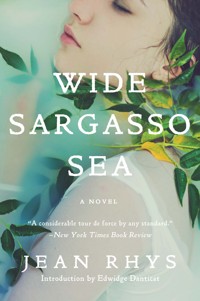
Wide Sargasso Sea, by Jean Rhys
Charlotte Brontë’s Jane Eyre was the first adult classic I tried to read. At 12, I loved its righteous protagonist, but the context of 19th-century Britain, powered by plunder from the Caribbean, Africa, and Asia, went over my head. Later, I learned to see the role that empire plays in the narrative: The madwoman haunting Jane and her beloved, Mr. Rochester, his Creole first wife, Bertha Mason, is shut up in the attic and compared to an animal. Cast aside in the original novel, she animates Rhys’s 1966 response: In Wide Sargasso Sea, Bertha is imagined as a girl originally named Antoinette, raised in Jamaica on a fallow sugar plantation after the abolition of British slavery. Rhys was British but born and raised in colonial Dominica, and she used her knowledge of the Caribbean and its dynamics to fill in the details of her main character’s life, defined by tensions between the planter class to which Antoinette belongs and their formerly enslaved neighbors. The prose jumps among narrators and flows dreamily from one moment to another, detailing how Mr. Rochester uses Antoinette’s Creole heritage and her family history of mental illness against her. Rhys’s project deals with Jane Eyre specifically, but her intervention asks us to consider other great literature in its historical and political context as well.
[Read: The adults who treat reading like homework]
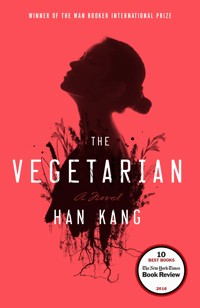
The Vegetarian, by Han Kang, translated by Deborah Smith
On the surface, The Vegetarian is a work of realism with a simple premise. Yet something in the book is profoundly destabilizing, turning it into a wonderfully vertiginous read. When it opens, we meet Mr. Cheong, whose wife, Yeong-hye, has always been absolutely normal—rather quiet, a good cook, competent at her part-time graphic-design job, and deferential enough to her husband. But one night, a dream sparks dramatic change: She stops eating meat and using animal products, refusing to even keep them in the home. This seemingly small, personal decision triggers absolute indignation in her husband, parents, and siblings. There is much pain in The Vegetarian—the weight of guilt, the desire to self-destruct, the longing to change everything about yourself, the presence of despicable characters—and the plot’s unpredictable trajectory can make for a challenging read. That discomfort is precisely what Han is digging into in this marvelous and worthy book. But there is beauty, too, sitting right alongside the ugliness, waiting to reward the reader who can handle its leaps.
What's Your Reaction?




















